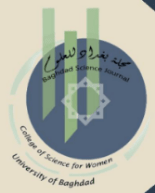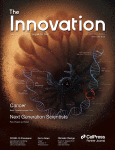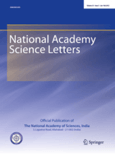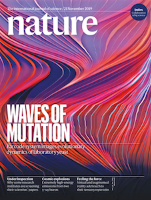
National Science Review
Scope & Guideline
Empowering innovation through open access knowledge.
Introduction
Aims and Scopes
- Interdisciplinary Research:
NSR encourages studies that bridge multiple scientific fields, fostering collaboration among physicists, chemists, biologists, and environmental scientists. - Advanced Materials and Nanotechnology:
Research focusing on the synthesis, characterization, and application of novel materials, particularly in nanotechnology, is a core focus area, reflecting the journal's commitment to materials science. - Environmental and Earth Sciences:
Papers addressing climate change, ecological impacts, and geological studies are prevalent, showcasing the journal's dedication to addressing global challenges. - Biomedical Innovations:
The journal publishes work related to biomedicine, including drug development, disease mechanisms, and medical technologies, highlighting the integration of biology and technology. - Artificial Intelligence and Machine Learning:
Emerging themes in AI applications across various scientific domains, including drug discovery, materials science, and environmental modeling, are a significant focus. - Energy and Sustainability:
Research on sustainable energy solutions, including batteries, renewable energy sources, and carbon capture technologies, is increasingly prominent.
Trending and Emerging
- Climate Change Solutions:
Research addressing mitigation strategies, carbon capture technologies, and the impacts of climate change on ecosystems is gaining attention, reflecting the urgency of environmental issues. - Biotechnology and Synthetic Biology:
Innovations in genetic engineering, CRISPR technologies, and synthetic biology are on the rise, showcasing the potential for transformative applications in medicine and agriculture. - Machine Learning and Data Science:
The integration of AI and machine learning in scientific research, particularly in data analysis, predictive modeling, and automation, is rapidly expanding. - Nanomaterials and Their Applications:
Research on nanomaterials, particularly in energy storage, catalysis, and biomedical applications, is increasingly prominent, reflecting advancements in materials science. - Health and Disease Mechanisms:
Papers focusing on the molecular and cellular mechanisms underlying diseases, especially in the context of COVID-19, have surged, highlighting the importance of health research. - Sustainable Energy Technologies:
Innovations in battery technology, renewable energy systems, and energy-efficient materials are a significant focus, aligning with global sustainability goals.
Declining or Waning
- Traditional Chemistry:
Research focusing solely on classical chemistry without interdisciplinary integration has diminished, as the field increasingly emphasizes connections with materials science and engineering. - Basic Physics Experiments:
Papers centered around fundamental physics experiments that do not lead to practical applications or interdisciplinary insights have become less frequent as the journal prioritizes impactful research. - Agricultural Sciences:
While still relevant, traditional agricultural studies are less prominent compared to interdisciplinary approaches that integrate biology, environmental science, and technology. - Conventional Energy Sources:
Research focused on fossil fuels and conventional energy sources has waned, giving way to studies on renewable energy and sustainable practices. - Local Environmental Studies:
Papers concentrating on localized environmental issues without broader implications or connections to global challenges have seen a decrease.
Similar Journals

JOURNAL OF SCIENTIFIC & INDUSTRIAL RESEARCH
Connecting Researchers to Drive Scientific ProgressJOURNAL OF SCIENTIFIC & INDUSTRIAL RESEARCH, published by the NATL INST SCIENCE COMMUNICATION-NISCAIR in India, serves as a prominent multidisciplinary platform for disseminating impactful research since its establishment in 1969. With an Open Access model adopted in 1999, the journal ensures wide visibility and accessibility of innovative findings across various scientific disciplines. The journal, indexed with an ISSN of 0022-4456 and an E-ISSN of 0975-1084, offers researchers, professionals, and students an opportunity to engage with a diverse body of work, ranking in Q3 of the Scopus categories for 2023. Its scope spans an extensive timeline, accommodating submissions across a wide array of industrial and scientific advancements, promoting collaboration and knowledge sharing. By adhering to rigorous academic standards, the JOURNAL OF SCIENTIFIC & INDUSTRIAL RESEARCH plays a critical role in shaping the future of science and industry, drawing contributors and readers eager to contribute to and understand the latest trends and discoveries in this dynamic field.

Baghdad Science Journal
Elevating Research Standards for a Brighter TomorrowThe Baghdad Science Journal (ISSN: 2078-8665, E-ISSN: 2411-7986), published by the COLL SCIENCE WOMEN, UNIVERSITY OF BAGHDAD, is a pivotal peer-reviewed open-access journal dedicated to a diverse array of scientific disciplines. Since its inception in 2004, it has established itself as a leading platform for disseminating innovative research in areas including Agricultural and Biological Sciences, Biochemistry, Genetics and Molecular Biology, Chemistry, Computer Science, Mathematics, and Physics. The journal has consistently achieved commendable rankings in the Scopus database, reflecting its commitment to quality and relevance in academic research. With a Q2 classification in Agricultural and Biological Sciences and Q3 classifications in several other categories as of 2023, the journal has become an invaluable resource for researchers, professionals, and students eager to contribute to scientific advancement. Based in Iraq, the Baghdad Science Journal serves as a bridge for global scientific communication, encouraging collaboration and providing access to groundbreaking discoveries.

Innovation
Advancing Knowledge Through Multidisciplinary InnovationInnovation is an esteemed open-access journal published by CELL PRESS that has emerged as a leading platform for multidisciplinary research since its inception in 2020. With an impressive Scopus rank of #3 out of 171 in the multidisciplinary category and a notable impact factor placing it in the 98th percentile, the journal has quickly established itself as a crucial resource for researchers and professionals seeking to disseminate groundbreaking ideas and developments across various fields. Located in the United States, at 50 Hampshire St, Floor 5, Cambridge, MA, Innovation aims to foster collaboration and innovation by providing unrestricted access to advanced research. Its commitment to excellence is reflected in its categorization as Q1 in 2023, indicating its high citation and influence within the academic community. The journal invites submissions that push the boundaries of knowledge and encourages scholarly discourse, making it an indispensable resource for students, researchers, and practitioners committed to making impactful contributions to their respective fields.

Research
Connecting ideas and researchers for impactful solutions.Research (ISSN: 2096-5168, E-ISSN: 2639-5274) is a premier open-access journal published by the American Association for the Advancement of Science, based in the United States. Since its transition to open access in 2018, the journal has established itself as a vital resource for the dissemination of high-quality, interdisciplinary research spanning various fields. With an impressive Q1 ranking in the multidisciplinary category for 2023 and a remarkable Scopus rank placing it in the top 6% of its field, Research is dedicated to advancing knowledge and fostering innovative research practices. The journal's comprehensive scope ensures that it caters to a diverse audience of researchers, professionals, and students, making it an essential platform for those looking to stay at the forefront of scientific discovery. The journal is actively accepting submissions for its converged years from 2018 to 2024, encouraging contributions that drive engagement and collaboration across disciplines.

SCIENCE PROGRESS
Fostering innovation across multidisciplinary research.SCIENCE PROGRESS, published by SAGE Publications Ltd, is a prestigious multidisciplinary journal with an impactful presence in the realm of scientific research. Recognized for its high quality, the journal holds a Q1 status in the 2023 category quartiles and ranks 35th out of 171 in its field, placing it in the 79th percentile within Scopus rankings. With its ISSN 0036-8504 and E-ISSN 2047-7163, SCIENCE PROGRESS has been a pivotal platform since its inception in 1946, fostering innovation and dissemination of knowledge across various scientific disciplines. Based in the United Kingdom, the journal aims to provide a comprehensive arena for researchers and professionals to share groundbreaking findings and insights, contributing to the advancement of scientific progress. Although the journal does not offer open access, it continues to be a vital resource for academics and practitioners alike, maintaining its relevance in a rapidly evolving scientific landscape.

Earth System Science Data
Pioneering Open Access for Earth and Planetary ResearchEarth System Science Data, published by COPERNICUS GESELLSCHAFT MBH, is a premier open access journal dedicated to advancing the field of Earth and planetary sciences. With an impressive impact factor, it holds a distinguished Q1 ranking in the Earth and Planetary Sciences category, underscoring its significance within the scientific community. Established in 2009, the journal has been committed to providing a platform for the dissemination of high-quality, freely accessible research data that supports the understanding and management of Earth's complex systems. The journal welcomes contributions that offer extensive datasets, innovative methodologies, and collaborations that push the frontiers of Earth sciences, making it an essential resource for researchers, professionals, and students alike. Based in Göttingen, Germany, Earth System Science Data remains a vital asset for those seeking to engage with and contribute to impactful scientific discourse across the globe.

Everymans Science
Bridging Science and Society.Everymans Science, with ISSN 0531-495X, is a distinguished journal published by the Indian Science Congress Association. Emphasizing a multidisciplinary approach, this journal aims to bridge the gap between scientific research and public understanding, making it an invaluable resource for researchers, professionals, and students alike. Although not currently an open access publication, it facilitates access to vital findings and insights that contribute to the advancement of science in India and beyond. Highlighting key developments across various scientific fields, including life sciences, physics, and environmental studies, Everymans Science serves as a platform for promoting innovative ideas and fostering collaborative research efforts. Its dedication to excellence in scientific communication ensures that it maintains a prominent place in the academic landscape, making it essential reading for those engaged in scientific inquiry and education.

NATIONAL ACADEMY SCIENCE LETTERS-INDIA
Connecting Ideas, Inspiring Innovations in EngineeringNATIONAL ACADEMY SCIENCE LETTERS-INDIA, published by SPRINGER INDIA, is an esteemed peer-reviewed journal dedicated to advancing knowledge in the field of engineering and its diverse applications. With an ISSN of 0250-541X and an E-ISSN of 2250-1754, this journal serves as a vital platform for researchers and professionals aiming to disseminate their high-quality research findings. Covering a range of topics that intersect engineering disciplines, it holds a respectable Q3 quartile ranking in the Engineering (miscellaneous) category as of 2023, indicating its significant role in the academic community. Located in New Delhi, India, the journal not only provides a valuable forum for innovative ideas from both emerging and established scholars but also emphasizes the importance of scientific research in addressing contemporary global challenges. While currently not offering open access, the NATIONAL ACADEMY SCIENCE LETTERS-INDIA strives to support the development of future technologies and methodologies, inviting contributions that will influence the engineering landscape for years to come.

NATURE
Leading the Charge in Multidisciplinary ResearchNATURE, published by NATURE PORTFOLIO, stands as a premier academic journal in the field of multidisciplinary sciences, and has consistently ranked number one in its category, reflecting its influence and prestige with an impressive 99th percentile position among 171 journals in the Scopus rankings. With an illustrious history dating back to 1869, this journal serves as a critical platform for disseminating pioneering research and groundbreaking discoveries across a myriad of disciplines. While it maintains a traditional publishing model, NATURE's significance is underscored by its high impact factor, making it an essential resource for researchers, professionals, and students seeking to stay at the forefront of scientific advancements. The journal's headquarters are located in Berlin, Germany, and it continues to shape the scientific dialogue globally.

Nature Communications
Exploring the Frontiers of Biochemistry, Chemistry, and PhysicsNature Communications is a premier open-access journal published by NATURE PORTFOLIO, distinguished for its broad scope encompassing Biochemistry, Genetics and Molecular Biology, Chemistry, and Physics and Astronomy. With a remarkable impact factor, this journal has achieved Q1 status in multiple disciplines, reflecting its pivotal role in disseminating high-quality research. Since its establishment, it has provided a vital platform for innovative and interdisciplinary studies, fostering collaboration among scientists worldwide. Situated in the United Kingdom, it has rapidly gained recognition, ranking 7th in Global Physics and Astronomy and Biochemistry, as well as 16th in Chemistry according to Scopus metrics. Accessible since 2015, Nature Communications facilitates the sharing of groundbreaking ideas, making it an invaluable resource for researchers, professionals, and students aiming to stay at the forefront of scientific discovery.